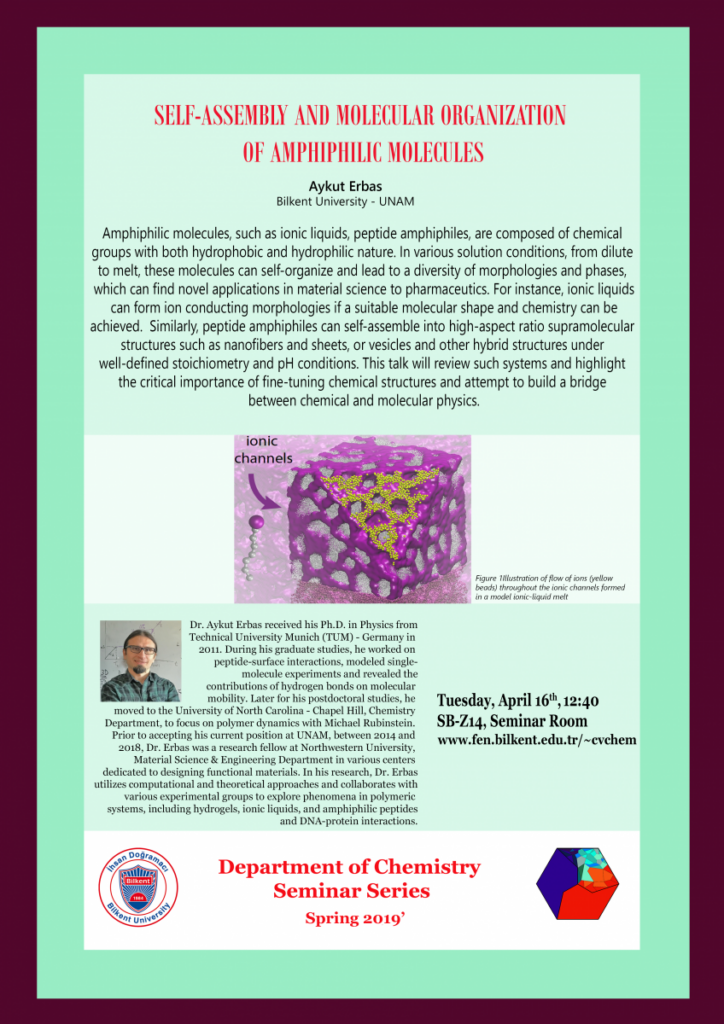Spring '19 Department Seminars with Dr. Aykut Erbaş
Title: Self-Assembly and Molecular Organization of Amphiphilic Molecules
Speaker: Dr. Aykut Erbaş
Institute of Materials Science and Nanotechnology, Bilkent University
Ankara, Türkiye
Date: April 16, 2019, Tuesday
Time: 12:40
Place: Departmental Seminar Room (SB-Z14)

Abstract:
Amphiphilic molecules, such as ionic liquids, peptide amphiphiles, are composed of chemical groups with both hydrophobic and hydrophilic nature. In various solution conditions, from dilute to melt, these molecules can self-organize and lead to a diversity of morphologies and phases, which can find novel applications in material science to pharmaceutics. For instance, ionic liquids can form ion conducting morphologies if a suitable molecular shape and chemistry can be achieved. Similarly, peptide amphiphiles can self-assemble into high-aspect ratio supramolecular structures such as nanofibers and sheets, or vesicles and other hybrid structures under well-defined stoichiometry and pH conditions. This talk will review such systems and highlight the critical importance of fine-tuning chemical structures and attempt to build a bridge between chemical and molecular physics.
Short Biography of the Speaker:
Dr. Aykut Erbas received his Ph.D. in Physics from Technical University Munich (TUM) – Germany in 2011. During his graduate studies, he worked on peptide-surface interactions, modeled single-molecule experiments and revealed the contributions of hydrogen bonds on molecular mobility. Later for his postdoctoral studies, he moved to the University of North Carolina – Chapel Hill, Chemistry Department, to focus on polymer dynamics with Michael Rubinstein. Prior to accepting his current position at UNAM, between 2014 and 2018, Dr. Erbas was a research fellow at Northwestern University, Material Science & Engineering Department in various centers dedicated to designing functional materials. In his research, Dr. Erbas utilizes computational and theoretical approaches and collaborates with various experimental groups to explore phenomena in polymeric systems, including hydrogels, ionic liquids, and amphiphilic peptides and DNA-protein interactions.